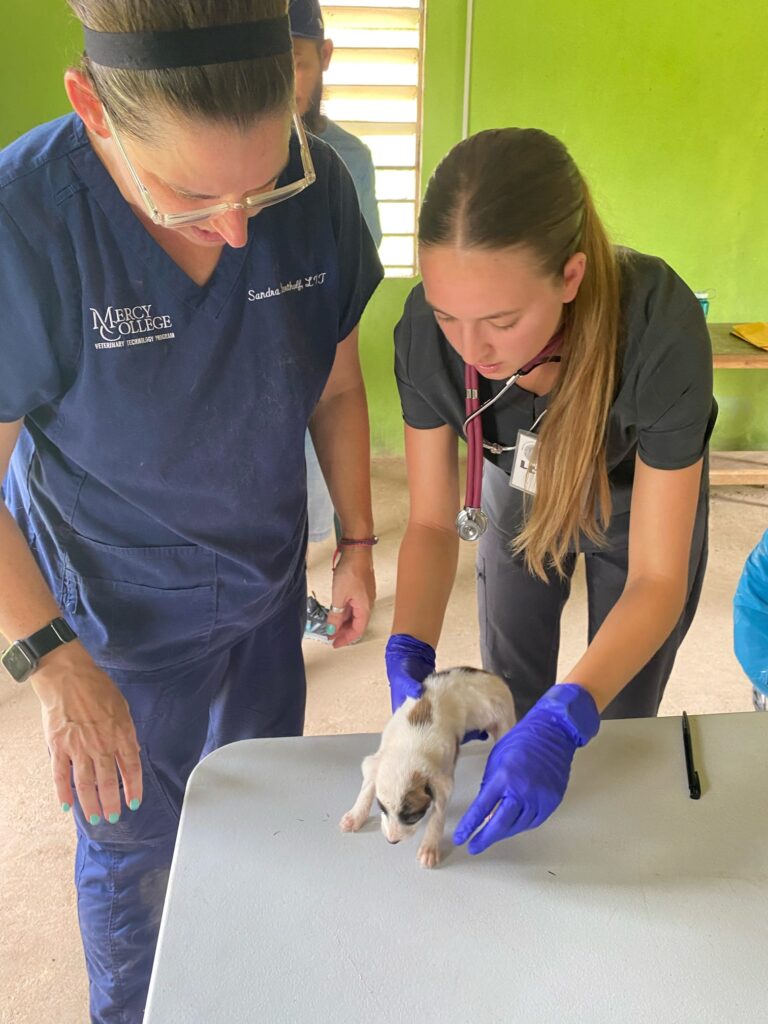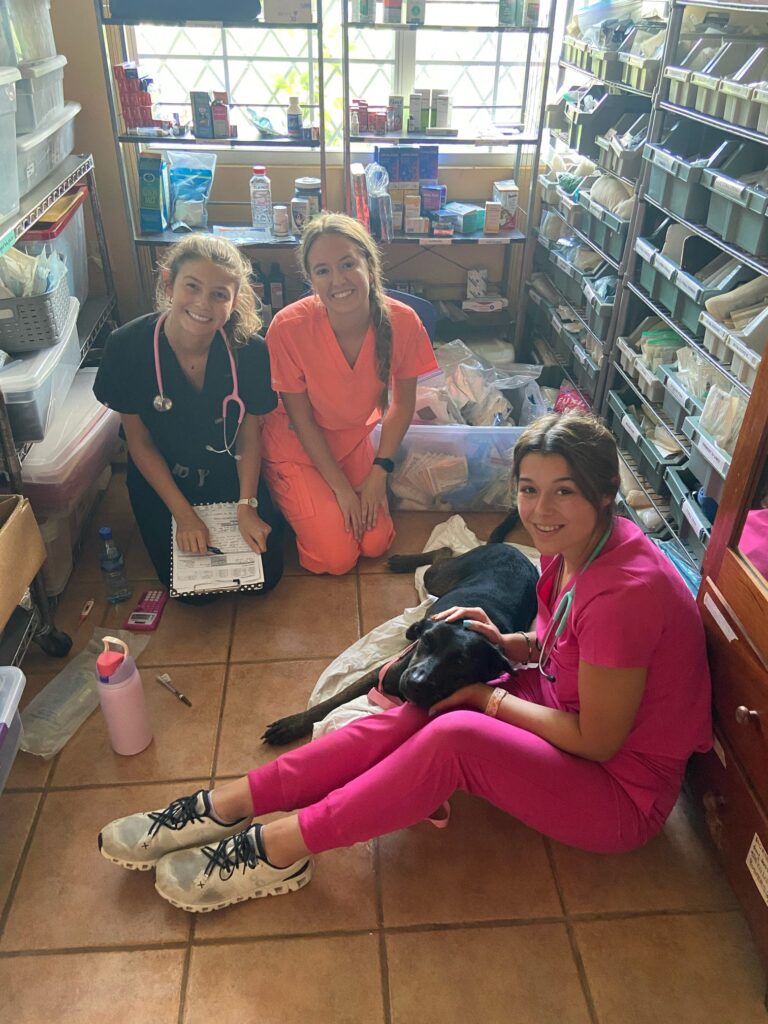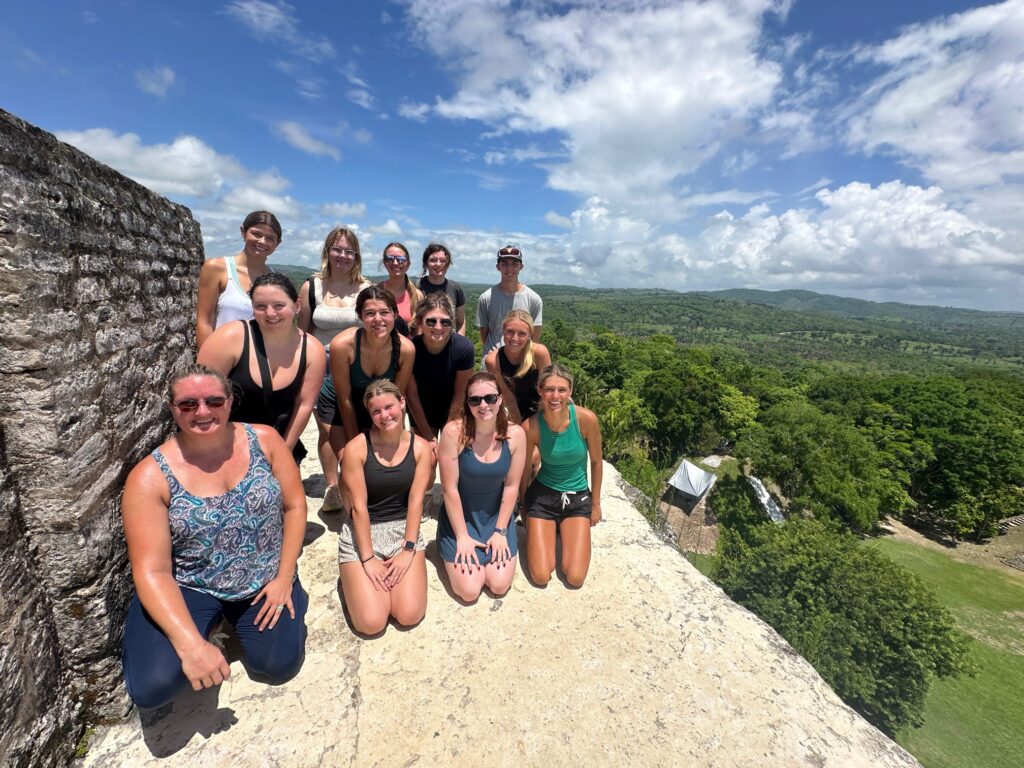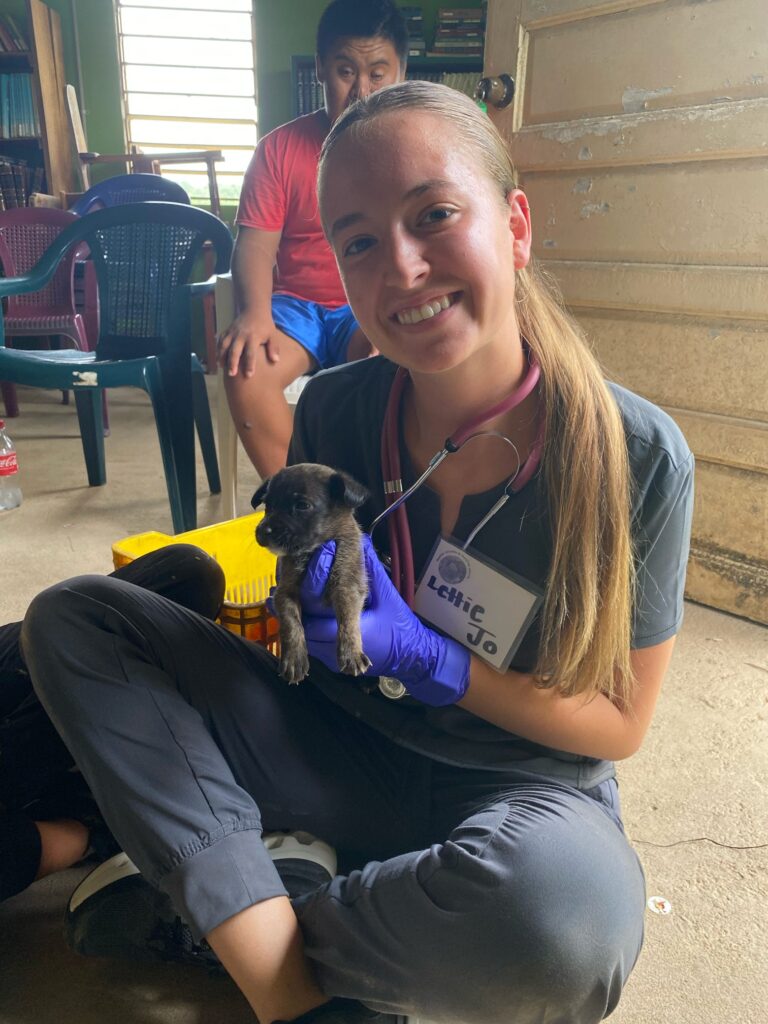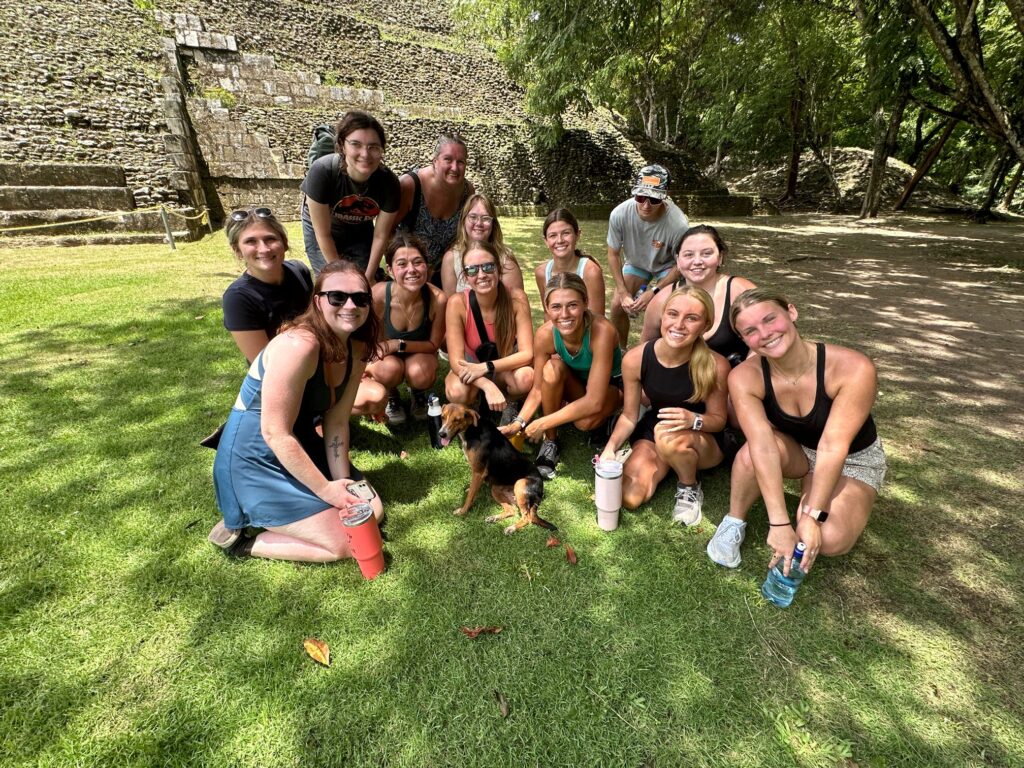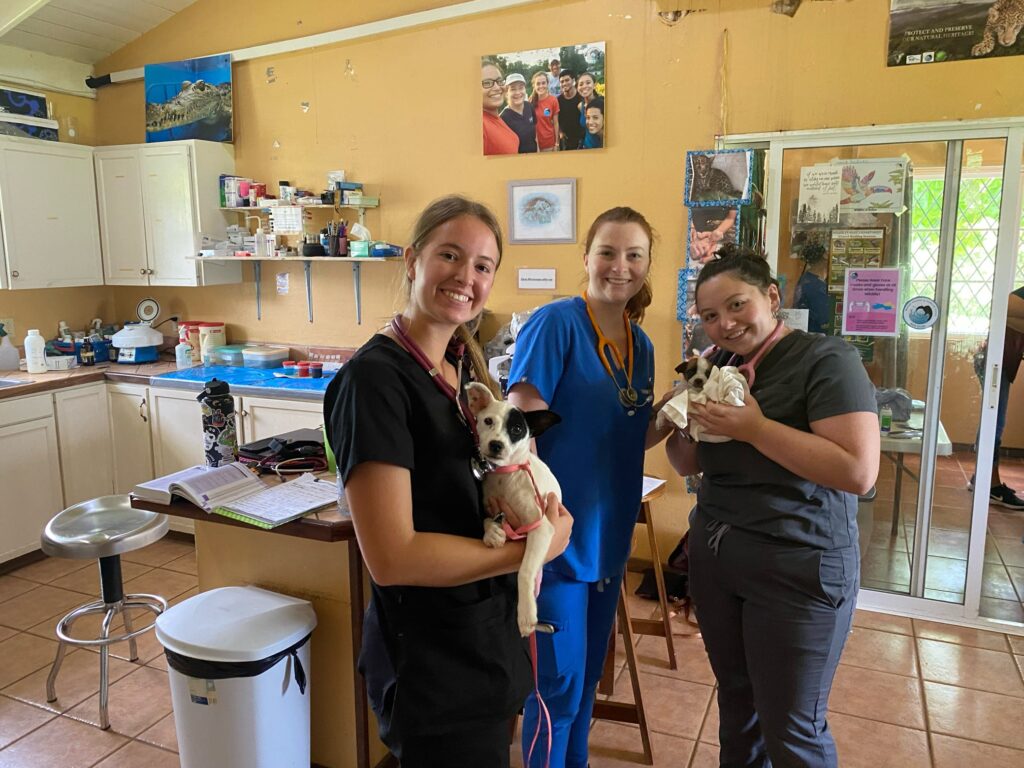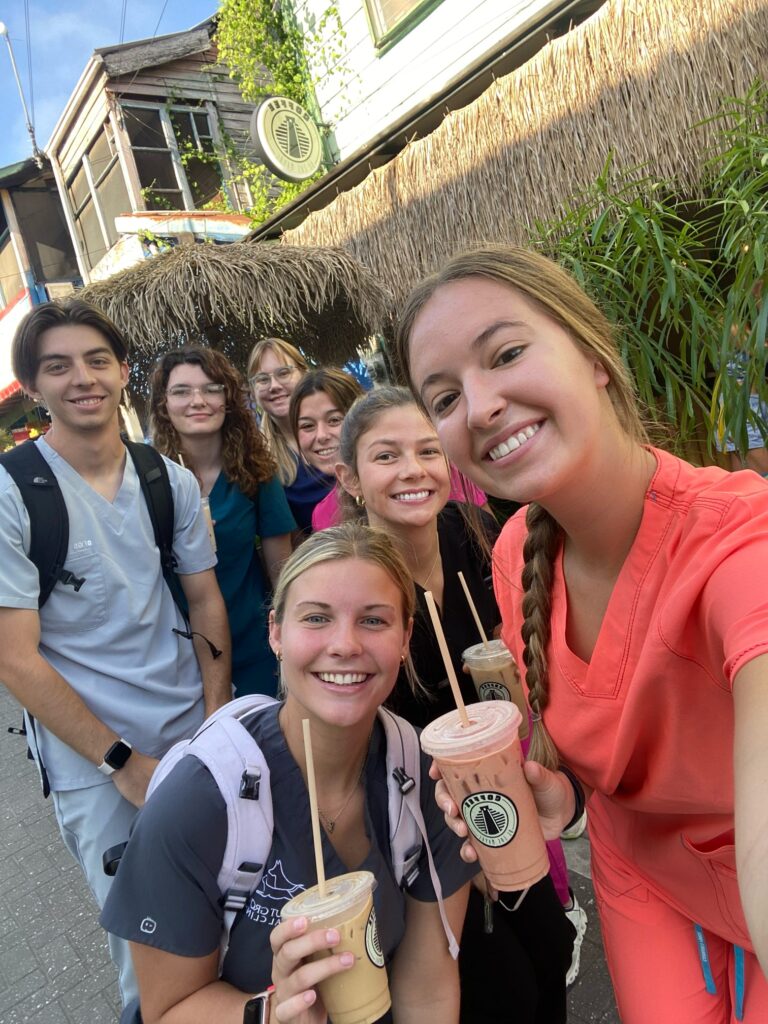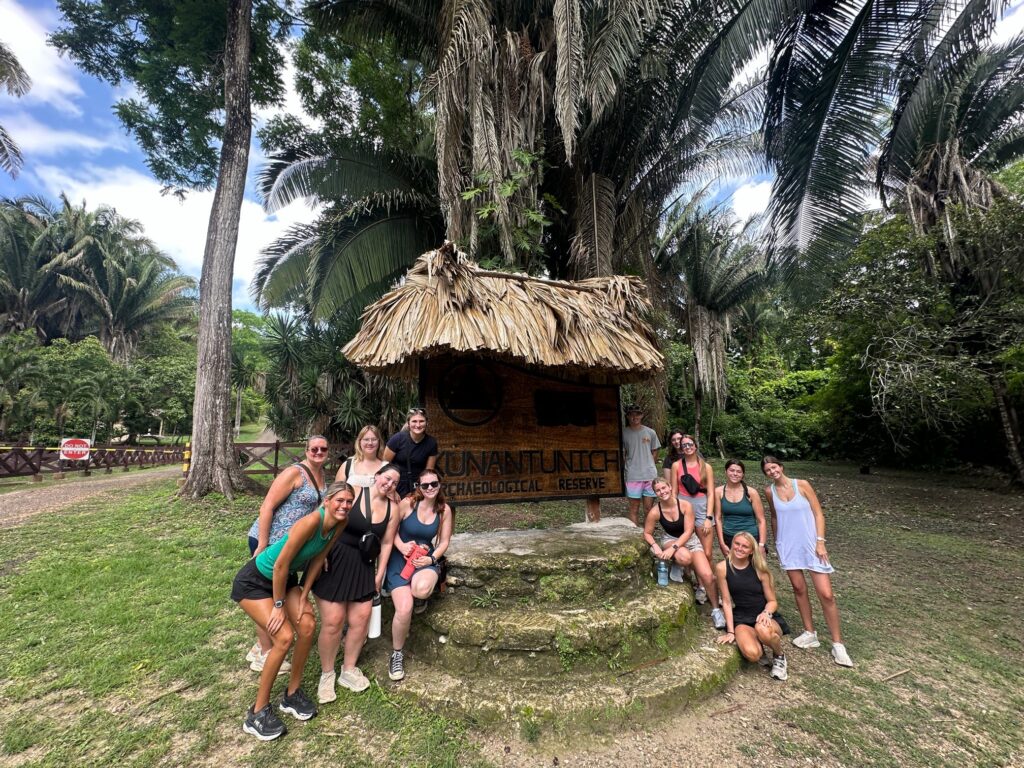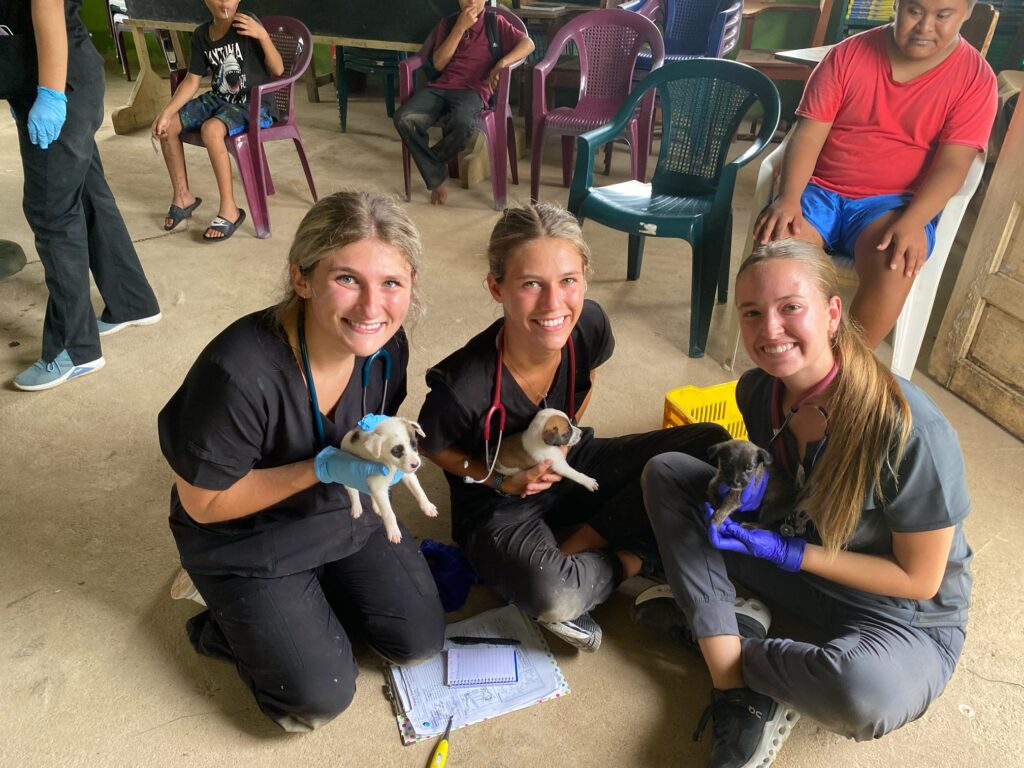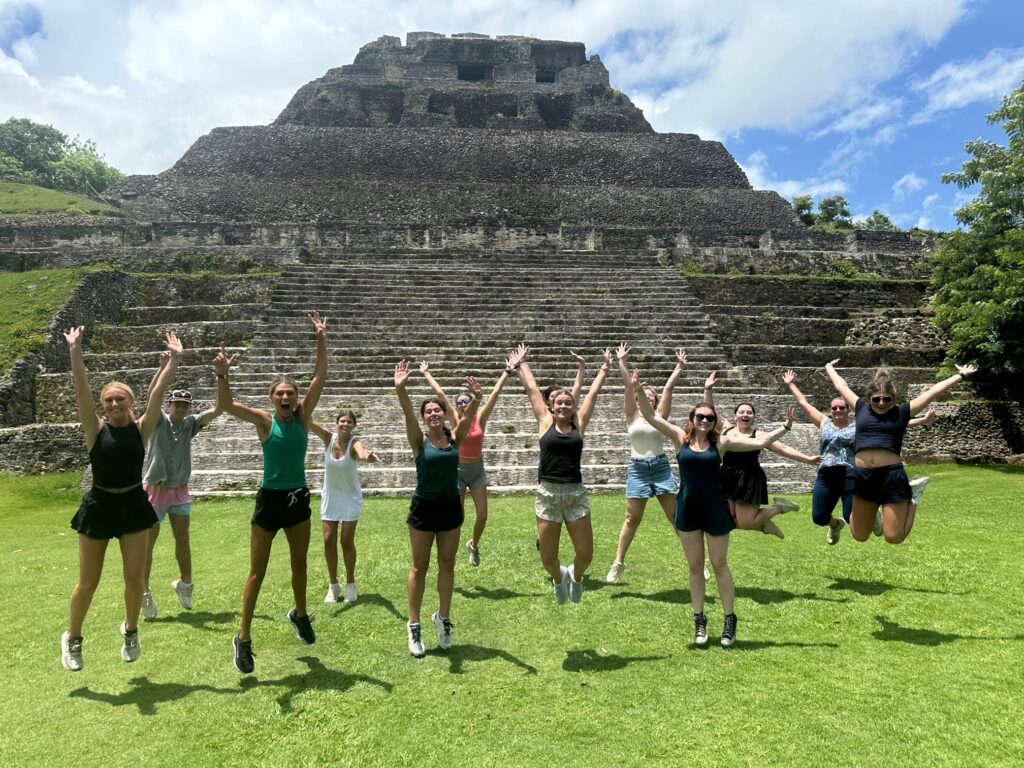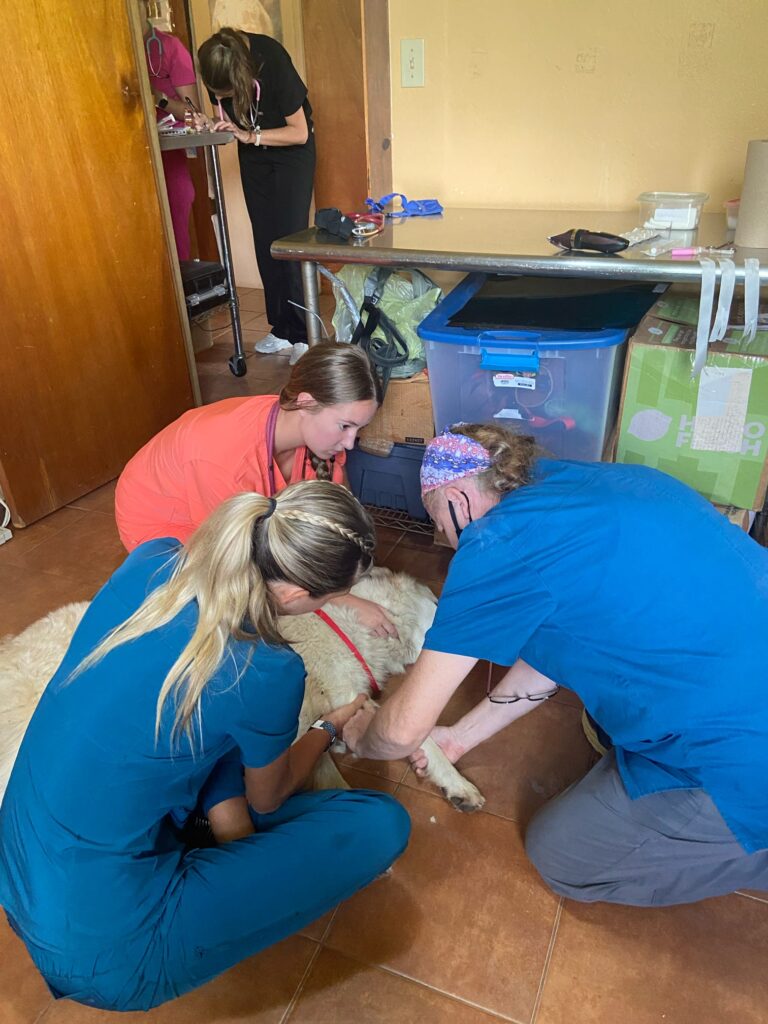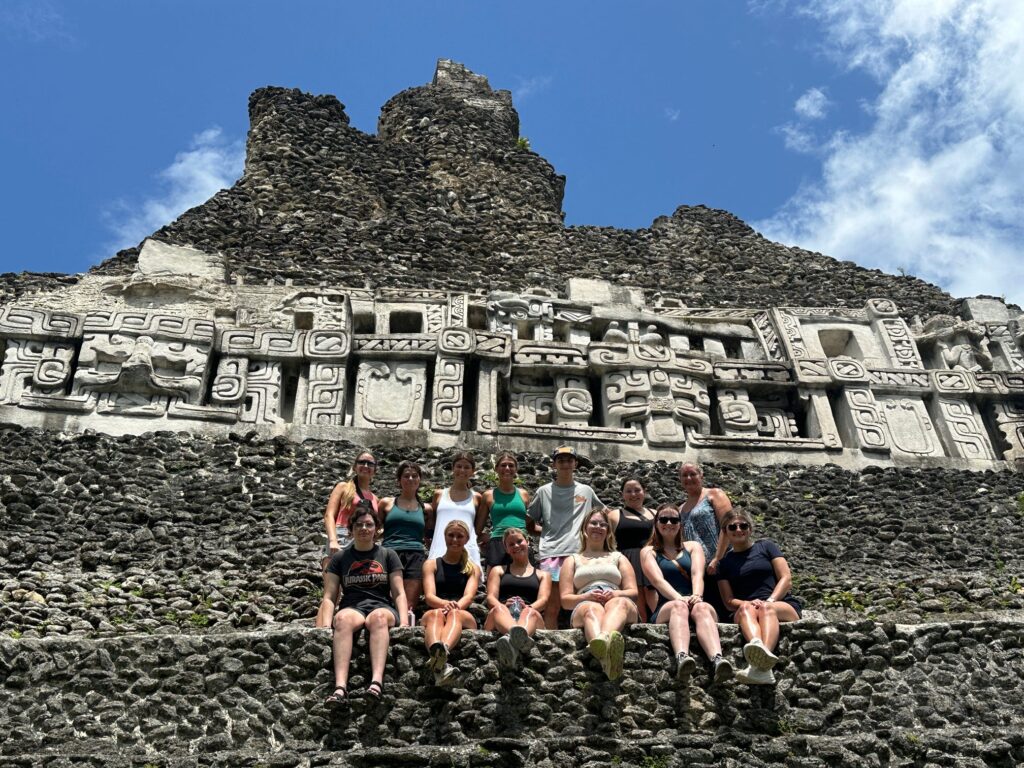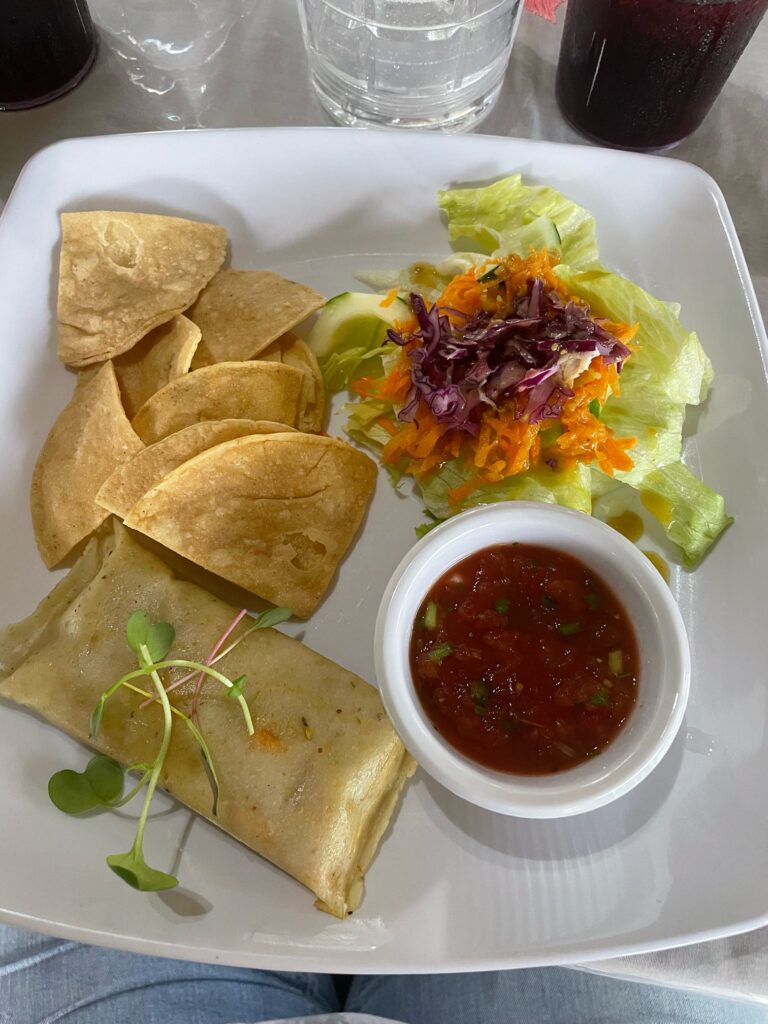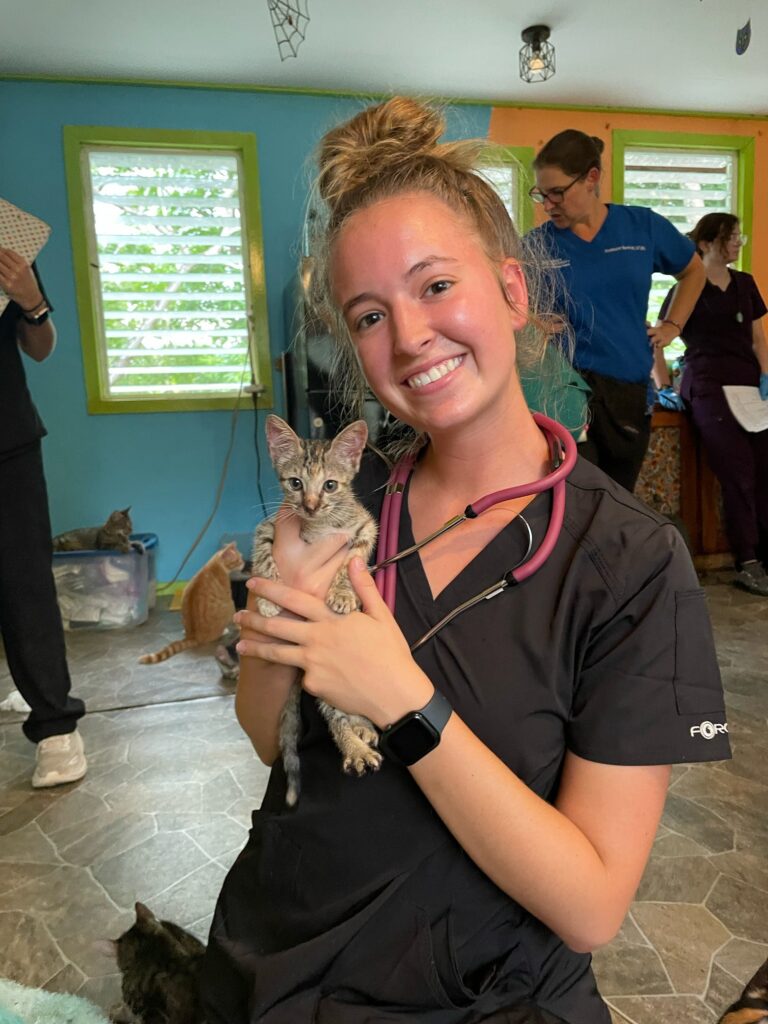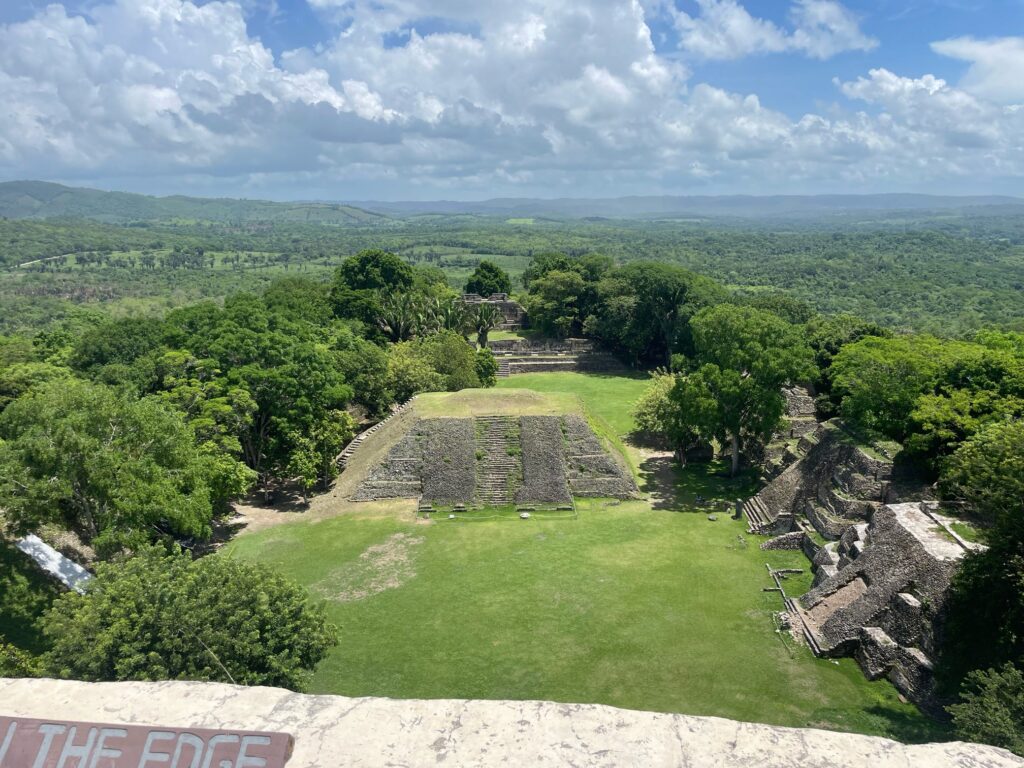
Study Abroad Program Offers Herbert Student Opportunity to Gain Valuable Experience in Veterinary Medicine
By Brooke Adams
Have you ever thought about studying abroad? At the University of Tennessee and the Herbert College of Agriculture, there are many opportunities for students to engage globally. These study abroad programs allow students to gain numerous skills, make memories, and impact their future careers. To hear more about student experiences abroad, stay tuned for more #StudyAbroadStories!
Lettie Jo Watson is a sophomore majoring in animal science with a concentration in pre-veterinary medicine and a minor in international agriculture and natural resources. She recently traveled to Belize with twelve other UT students to participate in the Small Animal Veterinary Experience (SAVE) study abroad program. Read more about the SAVE program and her experiences below!
The Small Animal Veterinary Experience (SAVE) is a faculty-directed study abroad program in Belize led by the School of Natural Resources and College of Veterinary Medicine faculty. This program is co-facilitated in partnership with the Belize Wildlife & Referral Clinic and other local animal welfare organizations. In this program, students travel to different locations in Belize to conduct animal health clinics, educational outreach, and community spay and neuter clinics. Watson described her time in Belize as “extremely hands-on” because she was able to assist in veterinary practices that she had never had the chance to participate in before. In this program, students will be exposed to immersive activities that can impact their career path. The SAVE program offers hands-on learning for students, even in their first year at UT, by offering them the opportunity to serve as the veterinary technicians. During the class attached to the SAVE program, Watson also had the chance to prepare and present about tick-borne diseases that communities in Belize face and how they affect veterinary practices there.
Lettie Jo shared how much she enjoyed being a part of such an immersive program that allowed her to have her first international experience. “It is a very unique program because we can work like a veterinary technician, even though we are not necessarily at that level in our training quite yet,” she explains. “We were able to do a lot of routine clinical work like performing physical exams on dogs, learning how to run blood tests, and even administering drugs for surgical procedures.” She emphasized how unique this experience was for her as an undergraduate student studying pre-veterinary medicine.
One of the highlights from her time abroad was going to local communities to register cats and dogs for a spay & neuter clinic. “That was the moment I was truly able to see the culture first-hand,” Watson describes. “We were able to be a part of everyday life and see Belize on more of a personal level.” Being immersed in different cultures is one of the biggest takeaways students can have from studying abroad. Experiencing life in another country on such a personal level can affect how young adults view the world around them.
Going into the SAVE program, Lettie Jo hoped to gain some background knowledge and experience in simple veterinary practices like spays, neuters, physical exams, etc. “I feel like I got that and so much more out of this experience,” she said. She expressed her newfound interest in pharmaceutical ecology and understanding why certain drugs affect animals in different ways. “I would have never gotten to have these experiences elsewhere and never expected to gain so much from this trip,” she stated.
Studying abroad provides students with a variety of growth opportunities, including helping them expand their personal and professional goals. “It is really easy to sit back and let things happen, but in veterinary medicine, you have to be confident in what you are doing and be willing to step up,” she emphasizes. “I had to learn to be confident in myself and my abilities, even when I am doubting myself.” She shared how she was able to get out of her comfort zone by being able to do practices she had never done before, like a blood draw on cats and dogs. She was also able to self-reflect on how much she was able to learn from this hands-on process. “If you want to push yourself, you have to be okay with being wrong or embarrassing yourself,” she stated. “Even if I made a mistake, I was able to learn from it, and now I will remember how to do it right the next time.”
Lettie Jo plans to go to veterinary school to become a veterinarian after she graduates from UT. She explained that being able to take advantage of opportunities like studying abroad will prepare her for her future goals as a veterinarian. Because of this trip, she was able to add more depth to her experience, become more culturally aware, and gain more knowledge of animal health practices. “I had never wanted to work with dogs and cats, but after this trip, I am open to working with any animals,” she said. This program helped open her eyes to all the possibilities within veterinary medicine.
As an out-of-state student, she expressed how the financial support available made it possible for her to study abroad. As a Herbert student, you can receive scholarships from a few different places including the Herbert College of Agriculture, the Smith International Center, the Center for Global Engagement, and more! Students are also able to use their current financial aid package, FAFSA, and scholarships toward study abroad. Lettie Jo encouraged other students to #GrowGlobal through studying abroad by saying, “Don’t be scared to take advantage of any and all opportunities that are available to you.”
To schedule a study abroad advising appointment, reach out to the Herbert Study Abroad Coordinator, Kyra Barrier at kbarrie4@utk.edu.
For more information about the SAVE program, follow the link: https://smithcenter.tennessee.edu/utia-study-abroad/belizevet/
For more information about study abroad scholarships, follow the link: https://smithcenter.tennessee.edu/study-abroad-scholarships/
